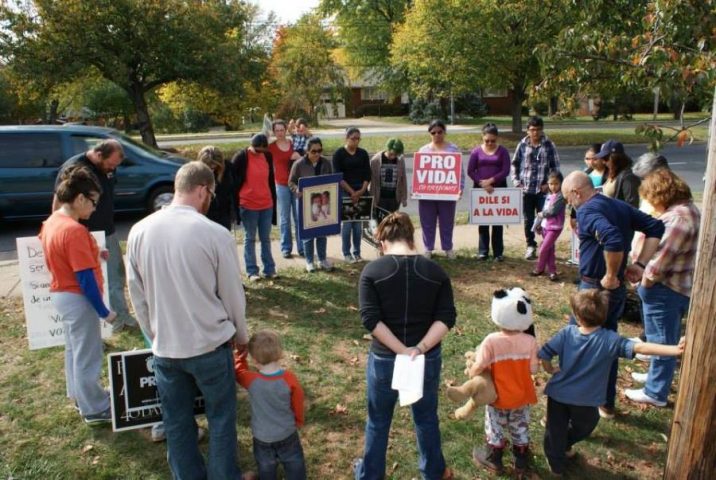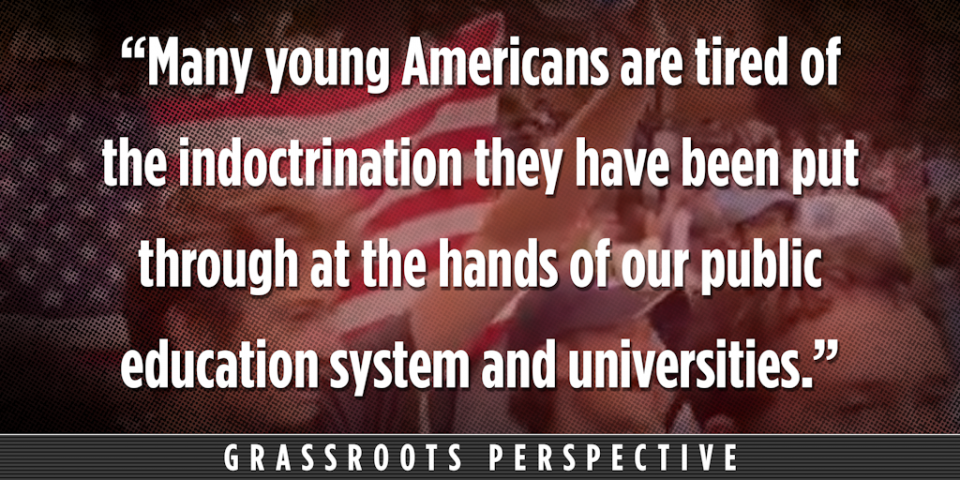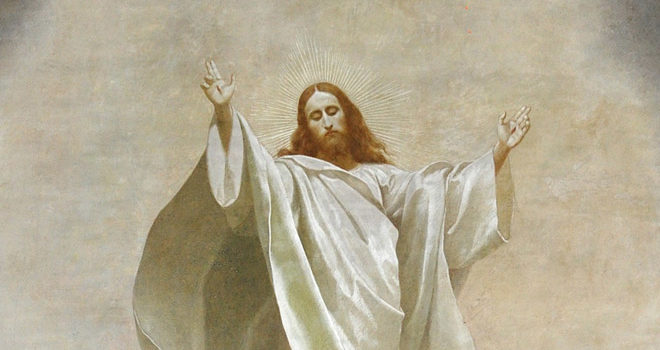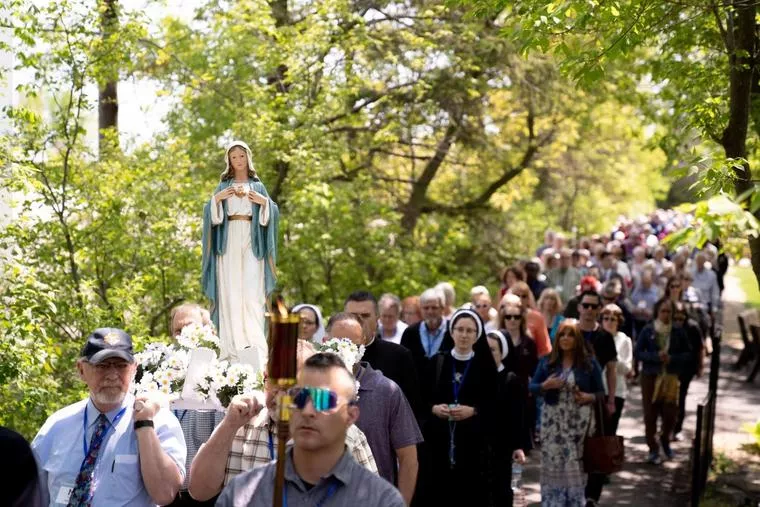By John Zmirak, a Senior Editor of The Stream, Oct. 26, 2017
 You know what doesn’t bring Christians together? Ecumenical meetings. Interfaith conferences. Joint statements on social justice. Initiatives like those do something else. They assemble ex-Christians, or fading Christians, or people who are pleasantly Christian-ish. They invite everyone to meet at the lowest common denominator of acceptably liberal opinion, and endorse a cause that’s in fashion among highly educated, wealthy white folks. Who here’s opposed to hunger? To hate? To cancer? Let’s boldly take a stand.
You know what doesn’t bring Christians together? Ecumenical meetings. Interfaith conferences. Joint statements on social justice. Initiatives like those do something else. They assemble ex-Christians, or fading Christians, or people who are pleasantly Christian-ish. They invite everyone to meet at the lowest common denominator of acceptably liberal opinion, and endorse a cause that’s in fashion among highly educated, wealthy white folks. Who here’s opposed to hunger? To hate? To cancer? Let’s boldly take a stand.
Such meetings convene the torpid, to agree on the insipid, for the benefit of the tepid. Maybe that’s why in their heyday neither the Vatican nor the conservative Evangelicals took part in them, while Social Gospel modernists dove into such ecumenism face-first. They haven’t come up for air since.
Standing Together Against the Enemies of Christ
What does bring Christians together? Persecution. Blows and spitting. You won’t see Christians in Egypt or Syria arguing over the Council of Chalcedon. They’re united in affirming Jesus’ divinity in the face of Islamic terror. They work together and help each other — the same groups that were raiding each other’s monasteries back in the fifth century. When I met the Anglican Vicar of Baghdad, who keeps together a Christian congregation against all odds, there was no call to talk about Thomas More vs. Thomas Cranmer. We stuck to the basics. Maybe that’s God’s way of calling us together again.
Ecumenical meetings convene the torpid, to agree on the insipid, for the benefit of the tepid.
Likewise when I read of Christian bakers and florists being sued or prosecuted for affirming natural marriage. I don’t wonder whether their theory of apostolic tradition is sound. I rally and support them, against the enemies of Christ.
Affirming God’s Gift of Human Life
You know what else brings us back to the fundamentals of faith? Confrontation with primal evil. The only times (apart from encounters with actual Nazis) that I’ve really sensed the presence of the demonic was outside abortion clinics. It was praying at those clinics with Operation Rescue in the 1980s that I first really got to know Protestants.
Growing up in an ethnic enclave of New York City, I thought pretty much everyone in the world was Irish, Italian, or Greek. There weren’t many evangelicals at Yale, as you can imagine. When I first knowingly encountered a Protestant, I wanted to ask him, “So how do you like our country?” Yeah, I was sheltered.
But then I met fervent Christians from other traditions on the streets of New York City, outside its abortion centers. They might close their eyes and raise their hands when they prayed while I was clutching beads. But we were praying together, and I was glad to be with them.
Finding Christian Unity Outside an Abortion Clinic
We weren’t navel-gazing, which is what I suspect consumes most of the time at overt “ecumenical” love-fests. No, we were looking together at the same thing: at the goodness of human life, the sacredness of sex, and the perfect storm of despair, lust and death that is every single abortion. We looked at the nicely groomed pro-choice college students who had bused in from Connecticut. They wore pink vests and chanted in unison: “Keep your rosaries off our ovaries.” You really haven’t lived till you’ve watched a six-foot blonde guy in preppy clothes chanting that on a Saturday morning.
He was the guy who knocked me to the ground. You see, a battered car pulled up, there on Park Avenue and 28th Street. Three blue-collar Hispanics were in it. The driver was a fierce and determined looking 30-year-old guy. In the back seat was an older woman, who’d come along for “moral support.” In the passenger seat hunched a terrified woman in her 20s, hysterically sobbing. Her long red fingernails clutched the dashboard, until her boyfriend peeled them off, one by one. The woman got out of the back and came around to the passenger door. She pulled, he pushed, and the pregnant woman was soon out of the car, suspended by her shoulders. On the way into the clinic, her feet never touched the ground .
When I stepped up and hailed the police, the blonde preppy guy earned his points as a “nookie feminist” by hurling me to the ground. It took maybe ten seconds for these pro-choicers to ensure that coerced abortion. The cops didn’t even shrug. I’m sure they saw things like this happen all the time.
The Valley of the Shadow of Death
I sprawled on the asphalt, stunned. It wasn’t a priest or nun who picked me up off the ground. It was one of the people whom I’d heard speaking in tongues. Maybe I’d rolled my eyes at that. (I can be kind of a jerk.) But when I looked up in the shadow of that Manhattan valley of death, what I saw was a fellow Christian. And that’s what I see at The Stream, and why I feel blessed to work here.
_________
John Zmirak is a Senior Editor of The Stream, and author of the new Politically Incorrect Guide to Catholicism. He received his B.A. from Yale University in 1986, then his M.F.A. in screenwriting and fiction and his Ph.D. in English in 1996 from Louisiana State University. His focus was the English Renaissance, and the novels of Walker Percy. He taught composition at LSU and screenwriting at Tulane University, and has written screenplays for and with director Ronald Maxwell (Gods & Generals and Gettysburg). He was elected alternate delegate to the 1996 Republican Convention, representing Pat Buchanan.
He has been Press Secretary to pro-life Louisiana Governor Mike Foster, and a reporter and editor at Success magazine and Investor’s Business Daily, among other publications. His essays, poems, and other works have appeared in First Things, The Weekly Standard, The Atlanta Journal-Constitution, USA Today, FrontPage Magazine, The American Conservative, The South Carolina Review, Modern Age, The Intercollegiate Review, Commonweal, and The National Catholic Register, among other venues. He has contributed to American Conservatism: An Encyclopedia and The Encyclopedia of Catholic Social Thought. From 2000-2004 he served as Senior Editor of Faith & Family magazine and a reporter at The National Catholic Register. During 2012 he was editor of Crisis.
He is author, co-author, or editor of eleven books, including Wilhelm Ropke: Swiss Localist, Global Economist, The Grand Inquisitor (graphic novel) and The Race to Save Our Century. He was editor of the Intercollegiate Studies Institute’s guide to higher education, Choosing the Right College and Collegeguide.org, for ten years, and is also editor of Disorientation: How to Go to College Without Losing Your Mind.



 You know what doesn’t bring Christians together? Ecumenical meetings. Interfaith conferences. Joint statements on social justice. Initiatives like those do something else. They assemble ex-Christians, or fading Christians, or people who are pleasantly Christian-ish. They invite everyone to meet at the lowest common denominator of acceptably liberal opinion, and endorse a cause that’s in fashion among highly educated, wealthy white folks. Who here’s opposed to hunger? To hate? To cancer? Let’s boldly take a stand.
You know what doesn’t bring Christians together? Ecumenical meetings. Interfaith conferences. Joint statements on social justice. Initiatives like those do something else. They assemble ex-Christians, or fading Christians, or people who are pleasantly Christian-ish. They invite everyone to meet at the lowest common denominator of acceptably liberal opinion, and endorse a cause that’s in fashion among highly educated, wealthy white folks. Who here’s opposed to hunger? To hate? To cancer? Let’s boldly take a stand.



